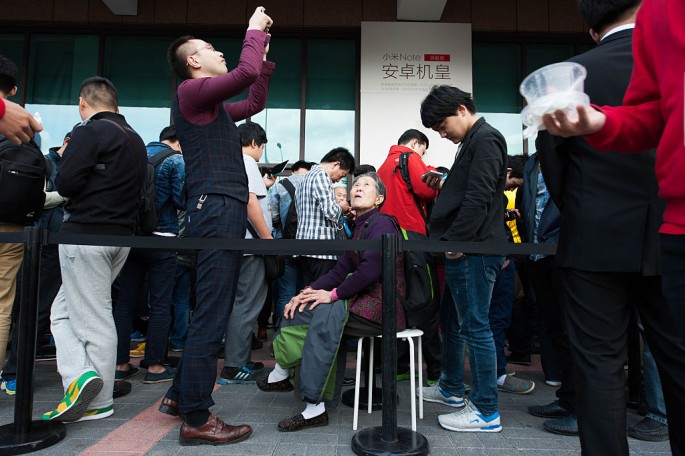Chinese smartphone maker Xiaomi Corp does not need to raise funds to and plans to take a slow approach in the U.S. market, according to a company executive.
At the Consumer Electronics Expo (CES) in Las Vegas, Xiaomi's Chief Financial Officer Shou Zi Chew brushed off speculation that the Beijing-based manufacturer is seeking additional funds in response to the company's loss of market share to competitors.
"I can categorically say there is no reason to go and raise funding," Chew said in an interview with The Wall Street Journal during the show. "The company is very robust and we have a very healthy cash balance."
He declined to disclose specific figures.
Xiaomi, one of China's leading start-ups with a value of $46 billion, surged to the top of the Chinese smartphone market in 2014 by selling phones online to cut costs and generate buzz through viral marketing.
But in the past two years, it has faced stiff competition against local rivals Oppo, Vivo and Huawei, which used traditional advertising campaigns to attract consumers.
Xiaomi's smartphone market share in China--its biggest market--dropped to 8.7 percent in the third quarter of 2016 from 15.9 percent a year earlier.
China's sluggish economy has also made some investors wary of startup valuations. Companies such as Xiaomi, which has raised massive sums on China's mobile Internet boom, have been facing growing pressure to meet expectations.
At CES, Xiaomi unveiled an ultra-slim television, the Mi TV 4, and a white version of its ceramic, bezel-free Mi MIX smartphone, which will be available in Chinese stores later this year.
Chew said the company is expanding its offline channels to improve sales of their products.
"We need to find the right way that aligns with Xiaomi's mission to tackle the offline market," Chew said, adding that the company has already invested in 50 brick-and-mortar Xiaomi stores.
Chew also highlighted Xiaomi's other ventures, including investments in hardware start-ups and an e-commerce platform which fledgling companies can use to sell their products online.
The company is now plotting its international expansion and has a timeline for building out its business in the U.S., he said, although declining to share details.
"This will take time. The U.S. is a very important market for us," Chew added.
Xiaomi's foray into foreign shores is not without criticism, as analysts warn that the company may face patent infringements if it expanded to the U.S. or Europe as it does not have enough intellectual property to strike cross-licensing patent deals with other smartphone makers.
Outside of China, Xiaomi has focused its efforts on expanding in India's smartphone market, although it has run against challenges there too.
Chew noted that his company has already applied for and acquired 16,000 patents worldwide.



























